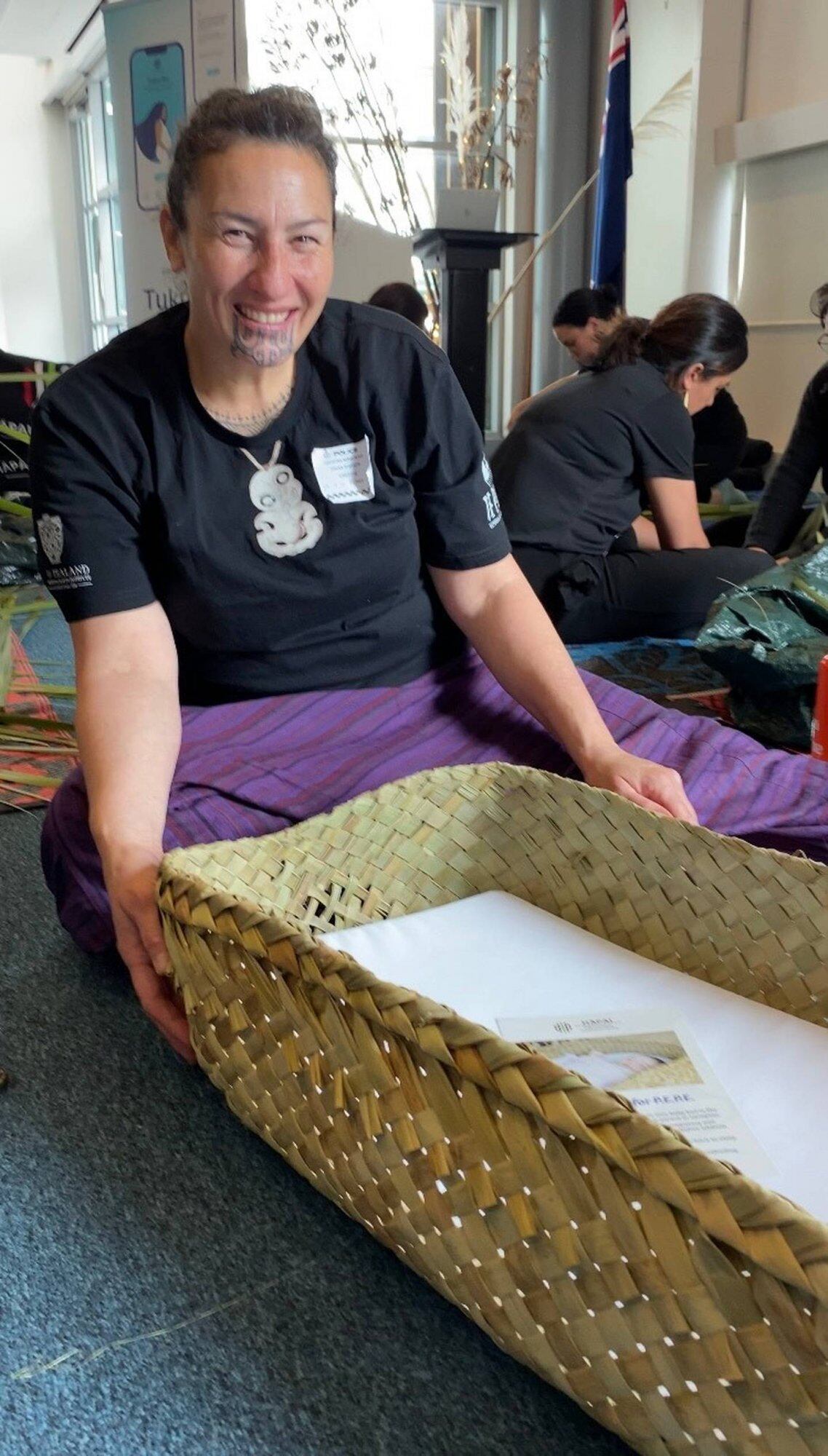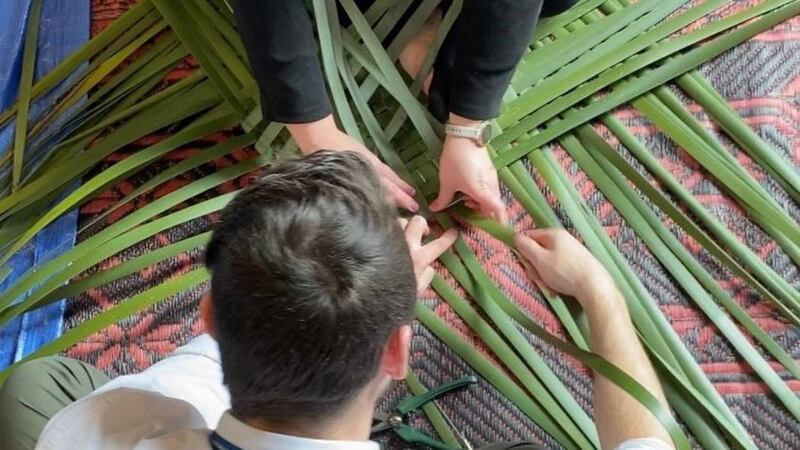Police officers learning to weave wahakura baskets for babies. Photo / Supplied
Counties Manukau Police are using traditional bassinet weaving practices to strengthen their understanding of sudden infant deaths, especially in Māori communities
SUDI (sudden unexpected death in infancy) is a major issues for many communities, including south Auckland.
Officers from the region reached out to Māori Health Policy and Research organisation Hāpai Te Hauora, looking for an indigenous and culturally appropriate way to support whānau who have or may experience SUDI.
It's the first time staff have engaged with Hāpai te Hauora - a tripartite organisation established by a Raukura Hauora o Tainui, Te Rūnanga o Ngāti Whātua and Whānau Waipareira collective in a Wahakura Wānanga.
A wahakura is a woven flax basket for infants. It creates a safe sleeping space for pēpi and prevents accidental suffocation while also promoting breastfeeding and bonding with pēpi.

Wahukura Pou Raranga Jenny Firminn Photo / Supplied
Pou-raranga Jenny Firmin says, "It's bigger than just making a wahakura. If you do it right, you can save a whānau."
National SUDI Prevention's General Manager, Fay Selby-Law says, "The main goal is to have police staff more aware of their engagement and how to kōrero with whānau māori."
Around 50 babies a year across Aotearoa deaths are attributable to SUDI, with Māori and Pacific communities in South Auckland suffering huge losses.
Selby-Law says they were aware Police potentially weren't dealing with SUDI cases very well and wanted training, "For us training is wānanga wahakura."
"Getting right in there, working with harakeke. (Police) understanding about atua māori, whānau māori and understanding about all those hononga (connections) that are really important to whānau."
Counties Manukau Constable Zac Conroy admits police practices of the past hasn't worked and now they're looking for better solutions.
"We've had a lot of raru (problems) with the community and the way we treat people and now we're changing our thoughts and the way we do things."
Conroy hopes that by going through Wahakura Wānanga, police staff can be more receptive to the communities and whānau they serve, when a infant suddenly passes.
Firmin says it's been good seeing the police involved in this initiative and aspires for more wānanga to be held but funding practitioners can be an issue.
"It's not just funding the wānanga, it's funding the experts. In this instance the experts aren't the health professionals, it's the pou-raranga."
Pou-raranga travelled from Whanganui to carry out the Wahakura Wananga and Firmin hopes that if more people get involved, more local weavers will come to light.
Once the wahakura are completed, they will be gifted to whānau in the community and hapū mama in the police.


